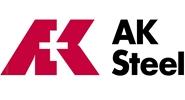Market Segment

April 25, 2017
AK Steel Says National Security Implications of Imported Steel are Real
Written by Sandy Williams
AK Steel reported net income of $62.5 million for its best first quarter since 2008. Shipments declined to 1,486,900 tons year-over-year due to intentionally reduced sales of lower margin products. Net sales increased one percent from Q1 2016 to $1.53 billion as a result of increases in average selling price on both spot and contract sales, higher specialty steel surcharges, and improved product mix. Average selling price per ton increased 12 percent to $1,022 from a year ago.
“Our first quarter performance reflected the ongoing benefits of our margin enhancement activities, strong operational focus and an improved pricing environment,” said Roger K. Newport, Chief Executive Officer of AK Steel. “We also made great progress in the quarter on new product development, as we continue to focus on introducing innovative products.”
During the earnings call, Newport talked about the continuing need to level the playing field and enforce trade laws. Most recently, the Trump administration initiated a Section 232 investigation to determine what national security implications the import of foreign produce steel have for the nation.
“While we recognize this as a trade tool not frequently used in the past prior government, we believe it is appropriate. The current global oversupply of steel and resulting flood of cheap imports have not and cannot be addressed by traditional trade cases alone,” said Newport.
“From our perspective, the national security implications of unchecked imports are very real,” said Newport, “especially, in the electrical steel market, where we are the sole U.S. supplier. Our grain oriented electrical steels are critical to our national electric grid system. In recent months, we have seen an increase in the level of grain oriented electrical steel or GOES imports entering into the United States, especially, from China, Korea, and Japan in particular.
It was noted during the call that a trade case on imports of GOES failed last year and the Section 232 may provide the relief AK seeks.
Newport said AK Steel is not planning to restart the idled Ashland facility at this time. Restarting Ashland would bring roughly 2-2.5 million tons of capacity back on line which cannot be started and stopped like an EAF. “So, we look at what the implications are there until you make money, and we make money at those incremental tons over the cycle and over the long-term, and how do we see the market conditions here in the U.S. to be able to support that.”
Middletown and Dearborn are working at full capacity in their carbon melt shops. Additional carbon capacity is available at Butler as well as rolling capacity. AK Steel anticipates capacity to stay relatively unchanged.
Said Newport, “Utilizations, as we’ve described before really depends on what area you’re talking about. We’ve got some more facilities that are 100% utilized from a melt standpoint, our melt shops continue to be fairly well-utilized. Going forward, I think it stays fairly flat to where we are now, really, no sizable change one way or the other. We’re pretty content with where we are now. We’ve managed to keep the facilities running well. We’ve managed to maintain them well. We’ve managed to get ourselves in a cost position that we can afford to take business or not take business, as the margins make sense. For the quarter, we’re somewhere in the mid to upper 70s, as far as percent utilization overall for the company.”
AK Steel expects second quarter shipments to be relatively flat compared to first quarter. An increase in shipments to the infrastructure and manufacturing markets are expected to be offset by a marginal decline in carbon automotive shipments. The award of new parts from OEMs in the second half will increase automotive shipments. Average selling price is expected to be marginally higher in the second quarter compared to the first. Major outages are planned at AK Steel Rockport and Dearborn Works in Q2.







